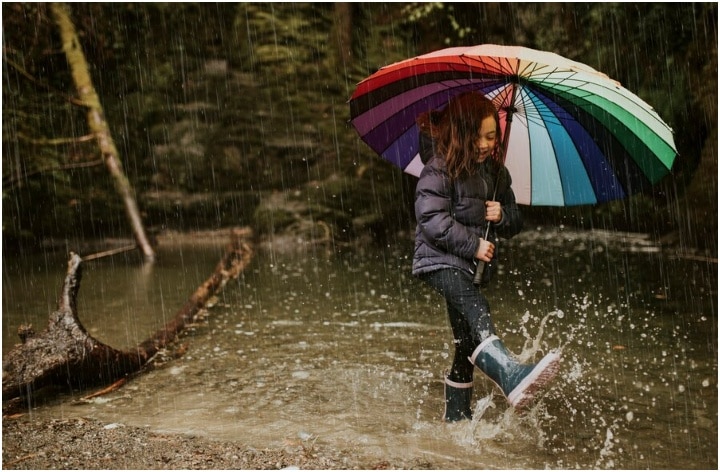Rainwater tends to increase allergies and here we explain how it can also affect your vision.
Monsoon rains bring health issues related to seasonal allergies. While colds, coughs, and asthma tend to increase, eye health is also something one should focus on. Did you know that rainwater can also damage your vision? While rainwater itself is not inherently harmful to eyesight, several environmental factors associated with the rainy season can negatively affect our eyes. Rain can cause blurred vision due to water on glasses or contact lenses. Also, driving in rainy conditions can affect visibility, so it is essential to take precautions to ensure safety.
Photo Gallery: 8 Fiber-Rich Superfoods to Boost Gut Health During Monsoon
Does rainwater affect eye vision?
Increase in allergens and irritants: Rain can stir up pollen, dust and mold spores, which often become airborne. For allergy sufferers, these allergens can cause itchy, watery eyes and increased sensitivity. Allergic reactions can cause discomfort and temporarily affect vision.
Contaminated water: In some areas, rainwater can accumulate pollutants from the atmosphere or from surfaces, affecting its quality. Polluted water can cause eye infections if it comes into contact with the eyes, especially for those who enjoy outdoor activities when it rains, such as swimming or playing sports.
While rain increases the humidity in the air, the accompanying moisture can also cause problems for contact lens wearers. High humidity can make lenses less comfortable, leading to dryness and irritation. This discomfort can distract from clear vision.
5 tips for eye health during the rainy season
- Cover your eyes: When you go outside, consider wearing sunglasses with UV protection, even on cloudy days. This helps protect your eyes from harmful UV rays and reduces glare from wet surfaces. If you wear contact lenses, consider switching to disposable daily lenses during the rainy season to minimize the risk of irritation.
- Controlling allergies: If you suffer from seasonal allergies, consult with an eye care professional or allergist for appropriate treatments. Antihistamines can help relieve symptoms such as itchy, watery eyes. Also, consider using a saline rinse to remove allergens after being outdoors.
- Maintain eye hygiene: Wash your hands regularly and avoid touching your eyes. If you’ve been caught in the rain, rinse your eyes with clean water to remove any possible irritants. If you wear makeup, make sure to use waterproof products to prevent it from running during the rain.
- Stay hydrated: Hydration is essential for overall health, including eye health. Drinking plenty of water helps maintain moisture levels in the body, which can prevent dry eyes. During the rainy season, many people forget to drink enough water, so it is necessary to make a conscious effort to stay hydrated.
- Use eye drops: Over-the-counter artificial tears may be beneficial in relieving dryness and irritation caused by moisture or allergens. Opt for preservative-free options to avoid further irritation.
Keeping up with routine eye exams is essential to maintaining eye health. Your eye care professional can provide personalized advice based on your specific needs and conditions, ensuring any potential problems are addressed early.
While rainwater itself is not a direct threat to your eyesight, environmental factors associated with the rainy season can affect eye health. By taking proactive steps to protect your eyes and maintain hygiene, you can enjoy the rainy season without compromising your eyesight.
